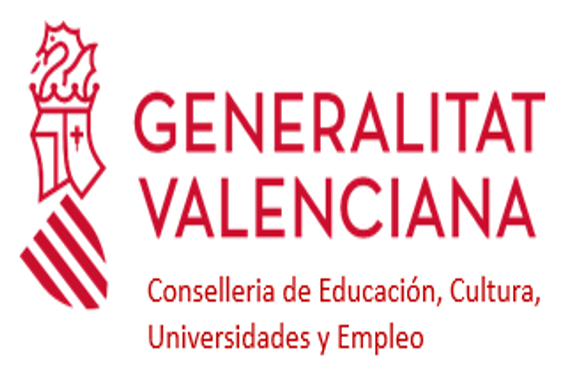.jpg)
TRAMEVIC Symposium 2: Transnational and Transcultural identities
6 de Juny, 10:00-14:00h
PROGRAMA
Habitación: Espai Cultural (1st floor)
Ubicación: https://maps.app.goo.gl/PRF83hSRrfT3WhUc7
Facultad de Filología, Traducción y Comunicación
Universidad de Valencia
Enlace a Zoom: https://uv-es.zoom.us/j/91903593800
10:00-10:10h
Bienvenida
10:10-11:10h
Panel 1
Bruce Grant
(New York University)
“Flexible Citizens: Visual Histories of Indigenous Siberia in Times of War”
Marie Sevela
(Kokushikan University)
“Multiple identities: Sakhalin Koreans and Karafuto Ainu between Russia & Japan”
10:10-11:20h
Descanso
11:20-12.20h
Panel 2
Florentino Rodao
(Complutense University of Madrid)
"Hispanicity in the Philippines after World War II: The Feudalism legacy"
Jordi Tordera
(Florida University)
“Translating Modality across Cultures: A Comparative Study of Japanese and Spanish Assertiveness in Godzilla Minus One.”
12.20-12.30h
Descanso
12-:30-14:00h
Taller TRAMEVIC
Coordinado por Marcos Centeno
Comité Organizador: Marcos Centeno, Berto García, Jordi Serrano, Ryan Choi, Jordi Tordera, Raúl Fortes, Amparo Montaner, Ana Prieto, Terushi Morimoto, Alberto Porta, Antonio Blat, María Ferrer, Enrique Burgos, Chuan Li.
Moderadores de Zoom: Ana Prieto, Alberto Porta.
Comité Científico: Blai Guarné (UAB), Vicente Sánchez-Biosca (UV), Jaume Peris (UV), Forum Mithani (Cardiff Univ), Irene González (Birkbeck, University of London), Dolores Martínez (SOAS, Univ of London/Oxford), Edward Vickers (Kyushu University), Bruce Grant (NYU), Barak Kushner (Cambridge)
Financiado por Generalitat Valenciana, Conselleria de Educación, Cultura, Universidades y Empleo, Reference CIGE/2023/066.
![]()

![]()
![]()
En colaboración con:
REPERCRI. Contemporary Representations of Perpetrators of Mass Crimes. Project NUREVIO: Nuevos paradigmas en la representación cultural de los espacios de violencia de masas: mirar y contar el siglo XX desde el XXI. Ref PID2022-140003NB-I00, funded by MCIU/AEI/10.13039/501100011033/FEDER, UE”.

BIOGRAFÍAS DE LOS PONIENTES
Marie Sevela
Kokushikan University
Marie Sevela (PhD) is an independent historian of Russia and Japan, and a translator based in France. She holds a PhD in History from Kokushikan University (Tokyo). Born in Moscow and having studied and taught in the UK, Japan and France, she is particularly interested in cross-cultural and transnational interactions in territories known for their “moving borders”. Along with written sources, she draws on oral history, film and photography in her research. Sevela has worked extensively on the pre-, during and post-war memories and identities among the many former Japanese, Korean and Ainu Karafuto (Sakhalin) residents for her thesis “Held in transition: Japanese nationals under Soviet rule on the Island of Karafuto/Sakhalin (1945-1949). Words, Objects, Images”. / 樺太とサハリンの狭間で: ソ連統治への移行期における日本人住民 <1945~1949> 言葉 • 物 •画像 ).
Bruce Grant
New York University
Bruce Grant is Professor of Anthropology at New York University. A specialist on cultural politics in the former Soviet Union, he has done fieldwork in both Siberia and the Caucasus. He is author of In the Soviet House of Culture: A Century of Perestroikas (Princeton 1995), a study of the Sovietization of an indigenous people on the Russian Pacific coast, and winner of the Prize for Best First Book from the American Ethnological Society; as well as The Captive and the Gift: Cultural Histories of Sovereignty in Russia and the Caucasus (Cornell 2009), on the making of the Caucasus in the Russian popular imagination. He is a recent past president of the Society for Cultural Anthropology, interdisciplinary wing of the American Anthropological Association; and ASEEES, the Association for Slavic, East European, and Eurasian Studies. His most recent essay is “North of East Asia: History, Memory, Indigeneity” for the proposed volume with Brill, Handbook of Memory Studies in East Asia.”
Jordi Tordera
Florida University
Jordi Tordera is a distinguished linguist, translator, and educator with a career that spans continents and languages.Jordi earned his B.A. in English in 1999 at the University of Valencia and completed an M.A. in Japanese Linguistics in 2008 at Kobe City University of Foreign Studies in Japan. In 2010, he achieved his Ph.D.at the University of Valencia, with a dissertation comparing Eastern and Western literary styles across English, Japanese, and Spanish. Tordera held at positions at the University of Valencia, Florida Universitaria, and the Valencian International University and at Japanese universities such as Kansai Gaidai and Himeji Dokkyo. Beyond academia, Jordi was part of Lladró Japan’s Tokyo branch, Coordinator for International Relations with the JET Programme, an interpreter, notably for the Nobel laureate Kenzaburo Oe and translator of Japanese literary classics, such as Vida de un idiota y otras confesiones by Akutagawa Ryūnosuke and La vida de Budori Gusko by Kenji Miyazawa. His research delves into language teaching, translation studies, and cross-cultural communication, with numerous publications and presentations at international conferences.
Florentino Rodao
Complutense University of Madrid
Catedrático de la Universidad Complutense y Doctor en Historia contemporánea por la Universidad Complutense (1993) y Doctor en Ciencias y Letras por la Universidad de Tokio (2007) (地域文化研究教養学部東京大学), con la Tesis La Comunidad Española en Filipinas, 1935-1939. El impacto de la Guerra Civil Española y de los comienzos de los preparativos de la independencia de Filipinas en su evolución e identidad. Ha sido investigador visitante en las Universidades de Tokio (2002), Harvard (2008, 2010), y en la South Pacific (2012, Suva, Fiji) y ha impartido docencia en la Universidad de Keiō, en la Tokyo University of Foreign Studies (Japón), en el Ateneo de Manila (Filipinas, en Wisconsin y en Puerto Rico (USA). Es profesor de la Facultad de Ciencias de la Información de la UCM, del Máster Interuniversitario de Historia Contemporánea de la UCM, del Máster Universitario en Estudios Internacionales de la Universidad del País Vasco, del Máster de Asia Oriental de la Universidad de Salamanca, de los Cursos Revolución, Nacionalismo y Capitalismo de Vietnam y La Visión del Otro: Imágenes mutuas entre Japón y España en la Universidad Carlos II de Madrid, Ha publicado Españoles en Siam (1540-1939). Una aportación al estudio de la presencia ibérica en Asia Oriental (CSIC, 1998) Franquistas sin Franco. Una historia alternativa de la Guerra Civil en Filipinas (Granada: Comares, 2012) y, sobre Japón, Franco y el Imperio Japonés. Imágenes y propaganda en tiempos de guerra (Plaza & Janes, 2002) y La Soledad del país Vulnerable. Japón desde 1945 (Crítica, 2019). El Ministerio de Exteriores Japonés le concedió en 2018 un agradecimiento por su "impulso a la investigación sobre Japón" y en 2020 ha sido miembro del jurado de los premios Casa Asia.





